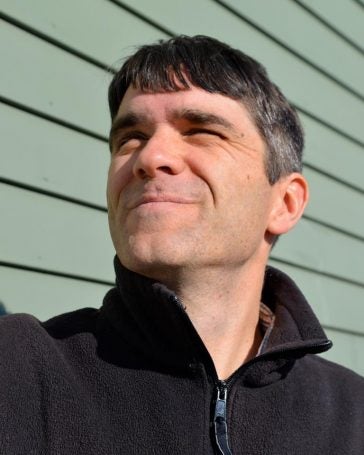 Tim Faulkner’s career path began with a deep appreciation for nature, dating back to his childhood as a Boy Scout in Rhode Island. “It was a combination of passions for writing and for the outdoors and the environment,” he said.
Tim Faulkner’s career path began with a deep appreciation for nature, dating back to his childhood as a Boy Scout in Rhode Island. “It was a combination of passions for writing and for the outdoors and the environment,” he said.
After writing for various Southern New England newspapers, Faulkner joined EcoRI News, an online publication devoted to educating the public about local environmental and social justice issues. Faulkner says his desire to incorporate more science into his stories led him to Metcalf Institute, where he attended a series of Peter B. Lord Seminars on the Environment on topics ranging from extreme weather and renewable energy to water quality and climate change.
In June 2014, Faulkner gained a more immersive Metcalf experience as one of ten journalists granted a fellowship to attend the highly competitive Annual Science Immersion Workshop for Journalists. Each year, at least one reporter from Rhode Island or Southern New England is included in the workshop to help improve and expand environmental news coverage and benefit news audiences in Metcalf Institute’s home region.
“My biggest highlight was learning from other writers while being in unique situations like a science lab or out on a fishing trawler, and also during the down time between activities,” said Faulkner. “I think being with other journalists and writers, learning from them, and sharing ideas is really invaluable…I got a lot of story ideas, and lots of sources.”
When asked about the challenges he faces covering climate change, the focus of the 2014 workshop, Faulkner said climate change tends to be politicized, and as a result, coverage becomes skewed along ideological lines. “Journalists should see research as a nonpolitical information source and use it as such for their writing,” he said. “That also means we need the skills to discern sound, trustworthy research, which Metcalf Institute helps us achieve.”
Faulkner currently covers everything from politics and environmental legal challenges to marsh restoration and renewable energy. He’s on a mission to inform his readership, inspire them to take action, and get more involved. “As a writer, I want to change people’s lives, I want to make a difference,” said Faulkner. “The science is certainly essential to creating a credible and compelling story.”
Read More Alumni Profiles